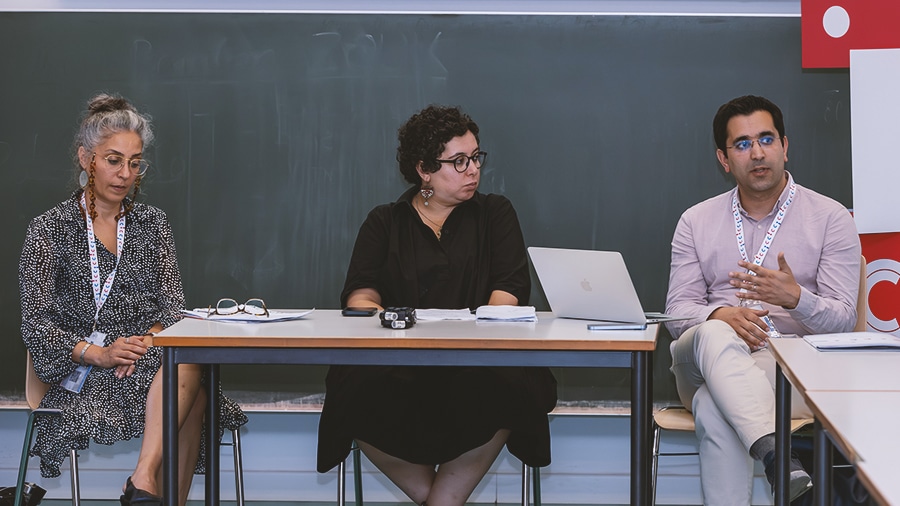Raha Sabet Sarvestany
Analyzing the Effect of the “Other”: the Discourse of the Iranian Baha’i Community Before and After the 1979 Revolution
Iqan Shahidi
Constructive Perseverance: A Look at the Thought and Practice of the Iranian Bahá’í Community in the Years after the [1979] Revolution
Moderator: Maryam Foumani
Raha Sabet Sarvestany investigates the agency of the Bahá’í community in Iran, examining its actions and thought processes as a deeply marginalized minority before and after the 1979 Islamic Revolution. Her research sheds light on the unique forms of agency expressed by this group, often excluded from mainstream narratives due to systemic discrimination.
Her study delves into the frameworks that define Bahá’í actions and discourse, presenting them as a distinct cultural and intellectual force in Iran’s socio-political history.
Despite its integral role in shaping modern Iranian thought since the mid-19th century, the Bahá’í faith and its community have largely been sidelined in academic inquiry due to stigmatization and lack of access to reliable sources.
Sarvestany’s research draws on Bahá’í archival materials to trace the development of the Bahá’í faith and community in Iran, highlighting their contributions to modernization and intellectual discourse both before and after 1979.
She argues that the systematic “othering” of the Bahá’ís, especially in the post-revolution era, reflects broader political and religious strategies aimed at undermining their legitimacy. This “othering” has not only poisoned public perception but also created significant barriers for scholars interested in studying the community’s contributions to Iranian society.
Through her work, Sarvestany addresses the interplay between religious, political, and cultural forces that have shaped the Bahá’í experience in Iran. Her analysis questions the policies of exclusion and distortion that have hindered fair representation of the Bahá’ís in both academic and societal contexts.
The research highlights the importance of reexamining the narrative surrounding the Bahá’í community to better understand their resilience and the lessons their experiences offer for broader conversations about justice, pluralism, and coexistence.
Ighan Shahidi explores the concept of “constructive resilience” as practiced by the Bahá’í community in Iran during decades of systemic oppression. Despite intense efforts by the government to marginalize and eliminate them, Iranian Bahá’ís have actively preserved their collective identity and societal existence.
Beyond survival, they have sought to create models of community life reflecting values and patterns distinct from the prevailing systems around them. Their approach embodies a dual effort: maintaining their integrity while contributing positively to broader society through resilience and creativity, even under restrictive conditions.


